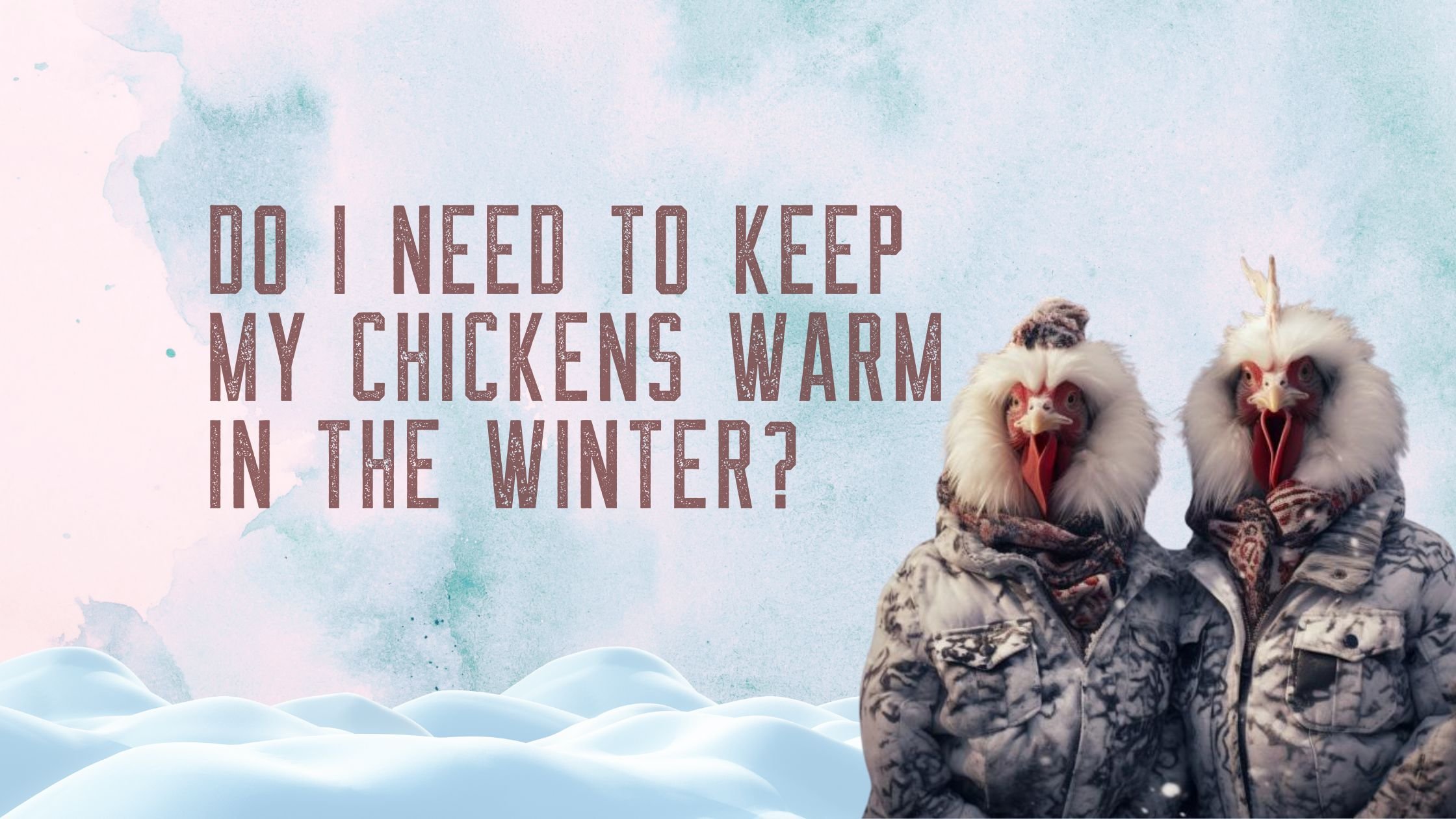Do I Need To Keep My Chickens Warm In The Winter?
As the winter months approach, backyard chicken keepers often grapple with a critical question: Do I need to keep my chickens warm during these colder months? Understanding the needs of your chickens in winter is crucial for their health and productivity. This comprehensive guide will explore various aspects of chicken care in winter, providing insights and practical tips.
Understanding Chickens' Natural Coping Mechanisms
Chickens, by nature, are pretty resilient to colder temperatures. They have several built-in mechanisms to combat the cold:
Feather Fluffing: Chickens can fluff their feathers to trap warm air close to their bodies, creating an insulating layer.
Roosting Behavior: Roosting allows chickens to conserve body heat by reducing the surface area exposed to the cold.
Reduced Activity: Chickens naturally reduce their activity in winter, saving energy and maintaining body heat.
Breed Matters
The ability of chickens to withstand cold weather can vary significantly based on breed. Generally, larger breeds with dense feathering, like the Buff Orpington or Plymouth Rock, fare better in cold climates than thinner breeds like the Leghorn.
Signs of Cold Stress in Chickens
Watch for these signs that your chickens might be struggling with the cold:
Unusual lethargy
Reduced egg production
Huddling together persistently
Signs of frostbite on combs and wattles
Creating a Winter-Safe Coop
Your chicken coop plays a vital role in winter safety. Here are some tips to winterize your coop:
Insulation: Ensure your coop is well-insulated but not completely airtight. Adequate ventilation is essential to prevent moisture buildup, which can lead to respiratory issues and frostbite.
Draft Prevention: Eliminate drafts, particularly around roosting areas, while maintaining ventilation.
Bedding: Deep litter bedding can provide extra warmth and insulation.
Lighting: Consider adding a light source to extend daylight hours, which can help maintain egg production.
The Debate: To Heat or Not to Heat?
Adding a heat source to your chicken coop is a contentious topic. While it can provide immediate warmth, there are risks and considerations:
Fire Hazard: Heating lamps and devices can be a significant fire risk.
Dependency: Chickens can become reliant on artificial heat, which can be dangerous if there's a power failure.
Acclimatization: Gradually exposing chickens to colder temperatures helps them naturally acclimatize.
Alternatives to Heating
If you're hesitant to use heaters, consider these alternatives:
Extra Bedding: Increase the amount of straw or wood shavings.
Windbreaks: Setting up windbreaks outside the coop can reduce the chill factor.
Group Housing: Keeping chickens together allows them to share body heat.
Feeding for Warmth
Diet plays a vital role in winter:
Higher Energy Foods: Offer more grains and seeds which help in generating body heat through digestion.
Constant Water Supply: Ensure chickens have access to unfrozen water. Dehydration can lead to decreased cold tolerance.
Preventing Frostbite
Frostbite can be dangerous, particularly for breeds with large combs and wattles. Applying petroleum jelly to these areas can provide some protection.
Monitoring Health and Behavior
Regularly check on your chickens for signs of cold stress or illness. Quick intervention is key to maintaining their health during winter.
Keeping chickens warm in winter depends on various factors, including breed, coop conditions, and local climate. While chickens have natural mechanisms to withstand the cold, as a poultry keeper, it's crucial to provide an environment that supports these mechanisms without causing dependency on artificial heat sources. Focusing on proper coop maintenance, diet adjustments, and vigilant monitoring ensures your chickens stay healthy and comfortable throughout the winter months.

